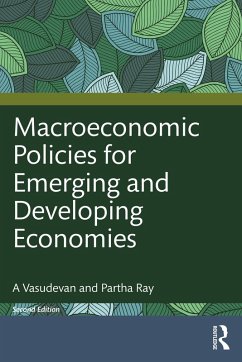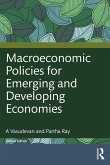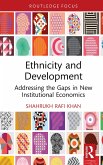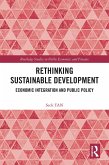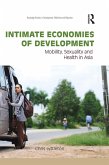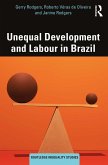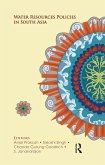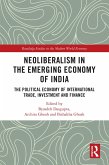Dieser Download kann aus rechtlichen Gründen nur mit Rechnungsadresse in A, B, BG, CY, CZ, D, DK, EW, E, FIN, F, GR, HR, H, IRL, I, LT, L, LR, M, NL, PL, P, R, S, SLO, SK ausgeliefert werden.
K. L. Krishna, Chairperson, Madras Institute of Development Studies, and Former Professor and Director, Delhi School of Economics, India
The crumbling of the modern macroeconomics consensus after the global financial crisis has opened up space for creative rethinking about macroeconomic policy. This book by A. Vasudevan and Partha Ray is a part of that process. It deserves to be read by all those who are interested in the craft of policymaking-professional economists, policy makers, economics students and journalists. Macroeconomic Policies for Emerging and Developing Economies has a rare combination of scholarly depth with the contextual nuances of policymaking. This book not only deals with the challenges of fiscal, monetary, exchange rate and financial stability policies but also re-establishes their forgotten link to national development strategies. It also transcends the usual binary distinction between positive economics and normative economics-and embraces what John Neville Keynes called the art of economics. A must read..
Niranjan Rajadhyaksha, Executive Editor, The Mint, India
This unusual and stylistically interesting book is rooted not only in the authors' rich global experience but also in reality. It stays true to their aim 'essentially to lay bare the processes, institutions and analytical underpinnings of macroeconomic policies'. But it goes well beyond that target. They view macroeconomics as much more than the theoretical constructs of academics or bureaucrats who serve to formulate economic policy in an increasingly turbulent world. Their inspiration comes from the Bengali addas or 'salons' that produce lively exchanges and penetrating commentary to arrive at a better understanding of issues under debate. Against this epistemic background, they relate efforts of rapidly emerging economies, such as India, to face up to the economic challenges of today's interconnected world. But the economy is more than economics. It also encompasses finance and behavioural sciences and takes into account people and their unfathomable behaviour, as well as the politicians' search for measures that would improve general welfare and ensure the longevity of political leaders themselves. The real world experience of the authors makes this a valuable addition to the literature. Let us hope political leaders will make the time to read and profit from its trenchant analyses.
Shuja Nawaz, Former Editor, Finance & Development quarterly of the IMF and the World Bank, and Member, Advisory Board, World Bank Research Observer; Distinguished Fellow, South Asia Center, Atlantic Council, Washington DC

